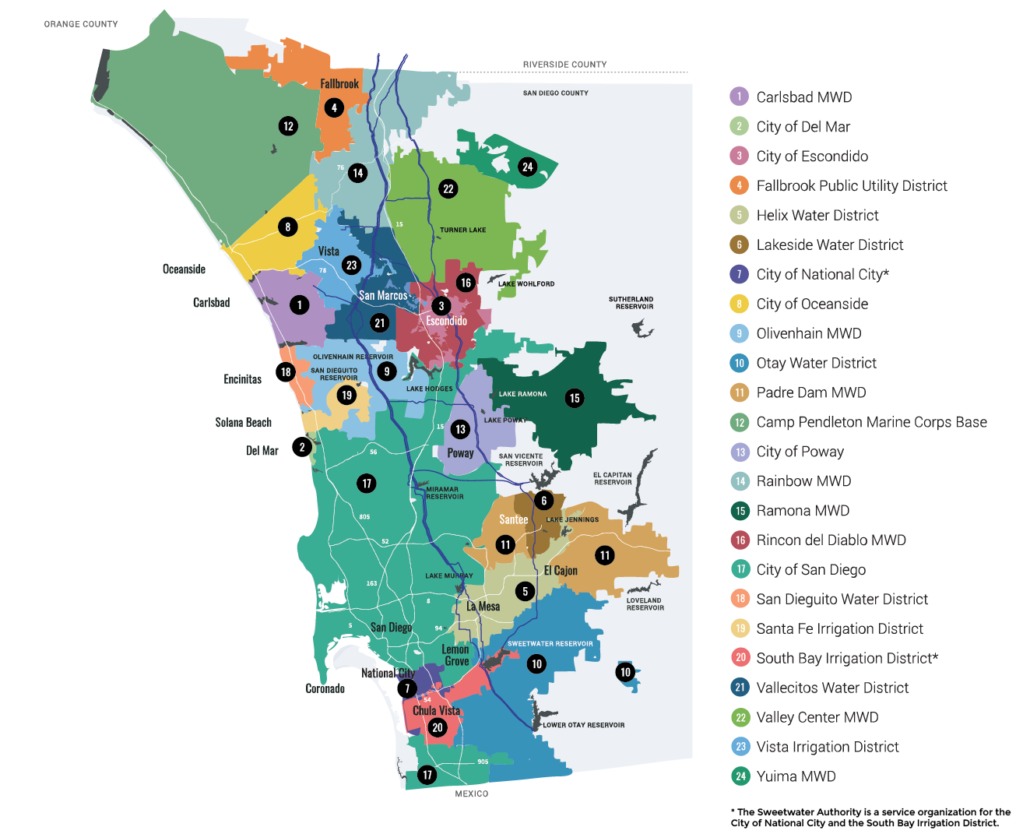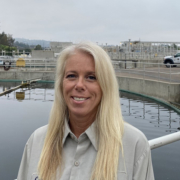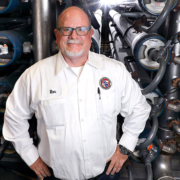Editor’s Note: This feature highlights water utility employees in the San Diego region working during the coronavirus pandemic to ensure a safe, reliable and plentiful water supply. The water industry is among the sectors that are classified as essential. Ron Lutge, City of Oceanside Chief Plant Operator, is the Water Utility Hero of the Week.
Water Utility Hero of the Week: Ron Lutge
Job/Agency: City of Oceanside Chief Plant Operator
How did you become interested in working in the water industry?
I became interested in the water industry in a round-about way. After leaving the military, I found it difficult to find work that was both mentally stimulating and challenging. I was looking for something that would allow me to work at an operational tempo I was used to. I definitely wasn’t looking for anything easy or slowed paced. At the time I was working at the General Electric aircraft engine overhaul facility in Ontario. Unfortunately, that industry proved to be unstable and did not offer a promising career. While searching for something new, I found Oceanside had a couple of openings for office workers. Since I had some experience working with spreadsheets and databases, I was offered a position in the water department. I figured this would keep me employed while I looked for something different. I soon discovered there were many disciplines within the water industry. I soon began researching career options in the water industry. Inspiration came from the supervisor I was working for at the time. I sat down with him and asked what were the requirements necessary to become an operator. I also received encouragement from the operators I came in contact with on a daily basis. That’s all it took. After that, I hit the ground running and have never looked back. The water profession is honorable, rewarding, and has offered me everything I have been looking for in a career – just like the military – another opportunity to continue being of service to others. And isn’t that what we as water professionals are here for – to be of service?
How has your job changed during the pandemic?
My personal day-to-day routine hasn’t really changed; I’m always busy. However, given the current health crisis we are all in, it has made me keenly aware of just how important it is to ensure our team is being taken care of, staying safe and healthy, and doing everything we can to ensure our facility stays operational to provide water to the residents of Oceanside without interruption. Because we operate our facility 24 hours a day, coupled with having a very small staff, we cannot work from home or implement rotating or staggered shifts. Everyone has to be ready, prepared, and available to work.
How are you keeping safe?
By following the guidance recommended by health officials to limit exposure in public, at work and home: social distancing, face coverings, sanitizing, washing hands, etc. By practicing these simple protocols we keep each other safe and minimize ourselves or others getting sick.
What are you most looking forward to after the crisis ends?
A return to some semblance of normalcy – whatever that may be.
The Water Utility Hero of the Week highlights essential work performed during the COVID-19 pandemic by employees of the San Diego County Water Authority’s 24 member agencies.






